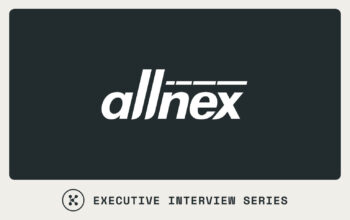Share
How to Make AI Work for You: A Guide for Chemical and Ingredient Companies
Reading Time: 4 minutes
Implementing AI is an opportunity for chemical and ingredient companies to empower field sales teams, streamline operations, enhance product development and optimize supply chains. However, to unlock AI’s potential, businesses must navigate unique challenges like data complexity, regulatory requirements and specialized workflows.
Here’s how chemical and ingredient companies can successfully implement AI and make it work for them.
Start with the Right Data Foundation
AI systems are only as good as the data they rely on. In the chemical industry, where unstructured data is often buried in PDFs, legacy systems and spreadsheets, building a strong data foundation is critical.
Structured Data is Key
Generative AI thrives on clean, structured data to reduce inaccuracies and “hallucinations” (AI-generated incorrect outputs). Structured data is data that is organized according to a strict taxonomy or schema. Databases are great examples of structured data. Examples of unstructured data are text in documents, images or video. Structured data ensures precision, traceability and relevance, making AI outputs more reliable.
Highly structured data reduces inaccuracies, ensures traceability and provides relevance. For instance, generative AI models can significantly minimize “hallucinations” when they are fed precise, categorized information. Examples include structured customer feedback enabling detailed product recommendations or curated compliance data ensuring adherence to regulatory standards.
Leverage Tools for Data Management
Implement a Master Data Management (MDM) platform to centralize, harmonize and enrich product data. Tools like Knowde AI ingest, cleanse and enrich data using a taxonomy developed by a team of chemical engineers, PhD chemists and information scientists.
Once the clean data layer is in place, companies can unlock scalable and innovative generative AI applications tailored to their evolving needs.
Focus on Vertical AI for Industry-Specific Needs
While generic AI tools can handle general tasks, vertical AI is purpose-built for industries like chemicals, offering specialized capabilities that cater to unique challenges.
Core Workflow Applications
Vertical AI can optimize supply chains, enable predictive maintenance and accelerate product formulations by using industry-specific data. For example, predictive maintenance tools use sensor data to reduce downtime in chemical plants, and formulation AI systems simulate outcomes to fast-track R&D efforts, reducing time-to-market for new products.
Specialized Data Models
Unlike horizontal AI tools trained on public datasets (here’s looking at you, ChatGPT), vertical AI tools for the chemical industry are designed to interpret chemical properties, regulatory frameworks and material science intricacies. This includes tailored compliance monitoring systems that automate reporting processes and advanced analytics platforms that predict regulatory impacts on production schedules.
Identify High-Impact Use Cases
AI implementation should start with use cases that align with your business goals.
- Sales Enablement: AI can centralize product catalogs and enable reps to quickly find the right product for customer needs, boosting cross-selling opportunities. For instance, field sales enablement platforms powered by AI allow reps to search and filter large product catalogs by technical specifications, speeding up customer interactions and increasing conversion rates.
- Customer Experience: Deploy self-service portals and chatbots powered by AI to answer FAQs, provide product recommendations and streamline order management. Enhanced digital selling platforms can also guide customers through the buying journey, turning online engagement into qualified leads.
- Predictive Maintenance: Use AI to predict equipment failures, reducing downtime and maintenance costs. Real-time sensor data analyzed by AI can identify wear patterns, enabling proactive maintenance that minimizes disruptions.
- Regulatory Compliance: AI-driven tools can automatically monitor and flag regulatory updates, ensuring compliance while reducing manual oversight. Automated compliance management minimizes the risk of costly fines and enhances data accuracy.
- Supply Chain Optimization: AI can forecast demand fluctuations, optimize inventory levels, and identify potential supply chain risks. By analyzing historical and real-time data, AI helps reduce overstock and stockouts, improving operational efficiency.
Prioritize Change Management
AI adoption is not just a technical challenge but a cultural one. Resistance from employees, especially in data-driven roles, can slow adoption. Change management strategies, including clear communication and hands-on training, are essential to overcome these barriers and ensure a smooth transition.
Train Your Teams
Invest in training programs to help employees understand and use AI tools effectively and securely. Early engagement fosters adoption and minimizes resistance. For example, employees might distrust AI outputs or resist changes that threaten established routines. Involve employees who own these processes or are resistant to change early on.
Communicate Benefits Clearly
Demonstrate how AI can reduce tedious tasks, improve accuracy and enable employees to focus on high-value activities. Communicate with short, specific messages to help employees retain the information. Share at least seven times in different communication formats (email, Slack/Teams announcements, intranet notices, staff meetings, manager 1:1s, etc) to ensure the message has a chance to sink in.
Build for Scalability and Compliance
Getting the foundational data right is essential for chemical companies to scale AI tools across internal departments and business processes effectively. Clean, centralized data enables a seamless extension of AI’s capabilities to various operational areas, ensuring consistent and scalable outcomes.
A director at a US-based automotive OEM overseeing source manufacturing operations remarked, “The most challenging aspect for us, in regard to the adoption of technologies, is the standardization between multiple plants, countries and regions.” Harmonizing foundational data addresses this challenge, enabling a unified and scalable approach across geographies and functions.
- Regulatory Compliance: Establishing a single source of truth for compliance-related data allows AI tools to streamline documentation and ensure adherence to safety and environmental standards. This minimizes risks and reduces manual oversight.
- Scalable Systems: Foundational data integrity supports the integration of AI across ERP, CRM and other systems. By harmonizing data at the start, companies can ensure AI applications are adaptable and scalable, allowing for streamlined workflows in supply chain management, customer service and product development.
Partner with Experts
Implementing AI in the chemical industry requires expertise in both technology and domain knowledge. Horizontal AI tools, while versatile, lack the precision needed to process the highly technical and regulated data characteristic of the chemical sector. Success depends on collaborating with industry-savvy partners who understand specific workflows, regulatory demands and data intricacies.
Choose Industry-Specific Partners
Work with AI vendors that understand the nuances of the chemical industry, like Knowde, which offers tailored solutions for product data management, sales enablement and customer experience. Partnering with vendors specializing in vertical AI ensures tailored solutions that integrate seamlessly into existing operations while minimizing resistance and maximizing adoption.
Avoid General-purpose AI Tools
Avoid repurposing generic tools or relying on agencies lacking chemical industry expertise. Tailored solutions save time and reduce implementation costs.
Measure and Iterate
AI implementation is not a one-and-done solution. Continuously measure its impact and iterate to improve outcomes.
- Set Clear Metrics: Track key performance indicators such as time savings, customer satisfaction and cost reductions to evaluate AI’s success.
- Create Feedback Loops: Use insights from AI tools to refine algorithms, processes and data inputs over time.
AI offers chemical and ingredient companies new opportunities for innovation and efficiency. By establishing a strong data foundation, leveraging vertical AI, and aligning AI initiatives with business goals, companies can turn AI into a strategic advantage. Partnering with experts and prioritizing change management will ensure a smooth and impactful implementation.
Discover how Knowde AI can help clean and organize your data, laying the groundwork for scalable AI solutions across your organization. Learn More Here




